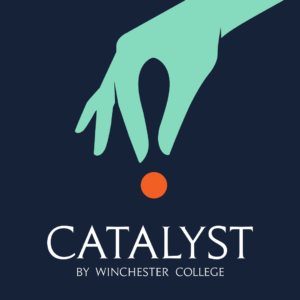
Every year, I get a lot of students who spend a huge amount of time worrying about whether to take the ACT instead of the SAT, or vice versa. They have all heard that the tests are rather different, and they think that choosing the one that’s right for them could make or break their college applications.
I’m here to tell you that, yes, the ACT and SAT are different, but it’s nothing to keep stressing out about. Being the serious college applicant that you are, there’s no time like the present to sit down and figure it out once and for all. Here is my take:
To begin, it’s worth remembering that both ACT and SAT are broadly accepted across the United States. Colleges will not discriminate against people who take one or the other. The SAT is the traditional and most popular choice in coastal and metropolitan areas, where the vast majority of the readers of this blog will go. If you talk to college representatives or fellow applicants in these areas, they will generally be more conversant in SAT scores, instead of ACT scores. If you have no strong feelings otherwise, you might prefer to take the SAT, just for convenience of use.

However, for many students, there is a genuine concern that they might perform better on one test or the other. In fact, there are some large differences in the test questions and formats. Overall, the SAT has roughly 30% fewer questions for a similar amount of testing time, so the SAT actually gives you significantly more time per question. There are also differences in each individual section of the tests.
The ACT contains a Science section, whereas the SAT does not. Many students who are good at science will assume that this makes the ACT better for them. But, while their assumption is perfectly reasonable, it turns out that the ACT Science section is not actually a test of science knowledge. In fact, the ACT specifically tells us that prior science knowledge is not required. So the test is essentially a reading test about science topics. Students who are comfortable with science will benefit, but it’s not the huge advantage that they originally thought.
The ACT Math section is slightly more advanced, in that it asks slightly more questions on advanced topics (geometry, trigonometry). Students who are good at math might, again, think that this makes the ACT better for them. But the ACT scoring system counts math for only one-quarter of overall score (versus one-half for SAT). So if you are counting on a great math score to lift up your overall score, the ACT doesn’t help you either.
The SAT makes particularly strong demands on reading. The SAT likes to use fiction literature passages in its Reading section, which are by far the hardest ones. The SAT also gives more text than anyone has time to read closely, so its testing strategy instead demands “critical” reading, which most students find very difficult to master in a short time. In contrast, the ACT deals mostly with informational passages, which are usually much easier to handle. Students who are less confident with reading will usually find the SAT more intimidating, at least without significant preparation.
As you can probably see, it can be very hard to pick between ACT and SAT in the abstract. My recommendation is, if you are still thinking about it, to try both. Ultimately, the thing that you are trying to achieve is the best overall percentile performance. Try some mock tests, or even the real things, to get a feel for both. If your percentile results are significantly different, continue to study the one that better suits you. Since the testing strategies are different, there is an advantage to knowing your preference early and sticking to it. You can soon move on to the most important business of studying the material for whichever test you choose.
To find out more about Ampla Education’s test prep and university application services, contact us at info@ampla-edu.com
____________________________________________________________
Patrick graduated from MIT with a Bachelor in Biology. He went on the Cambridge-MIT Institute Exchange program while at MIT and completed a J.D. course at Boston University School of Law, followed by a LLM. at UCL. Patrick has worked as a lawyer for a few years before becoming an education six years ago, providing counseling on US university and boarding school admissions.
______________________________________________________________
© Ampla Education – Unauthorised use of this material without permission is strictly prohibited. Excerpts and links may be used, provided that full credit is given to Ampla Education.



















